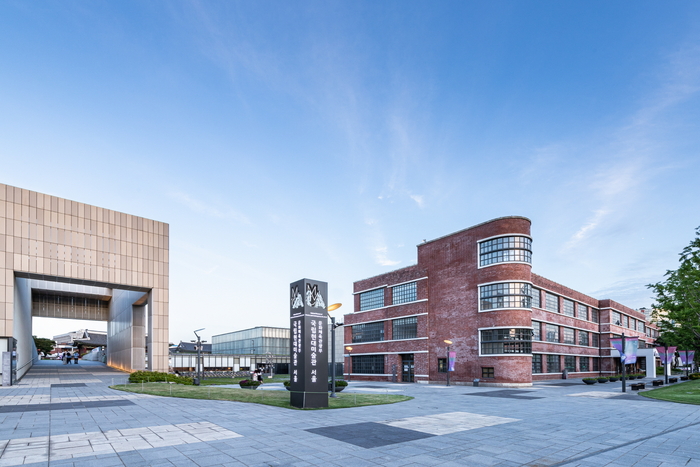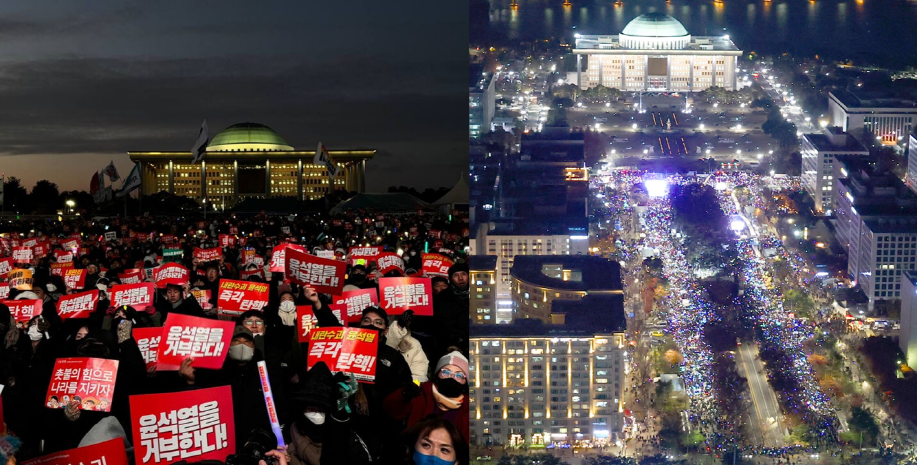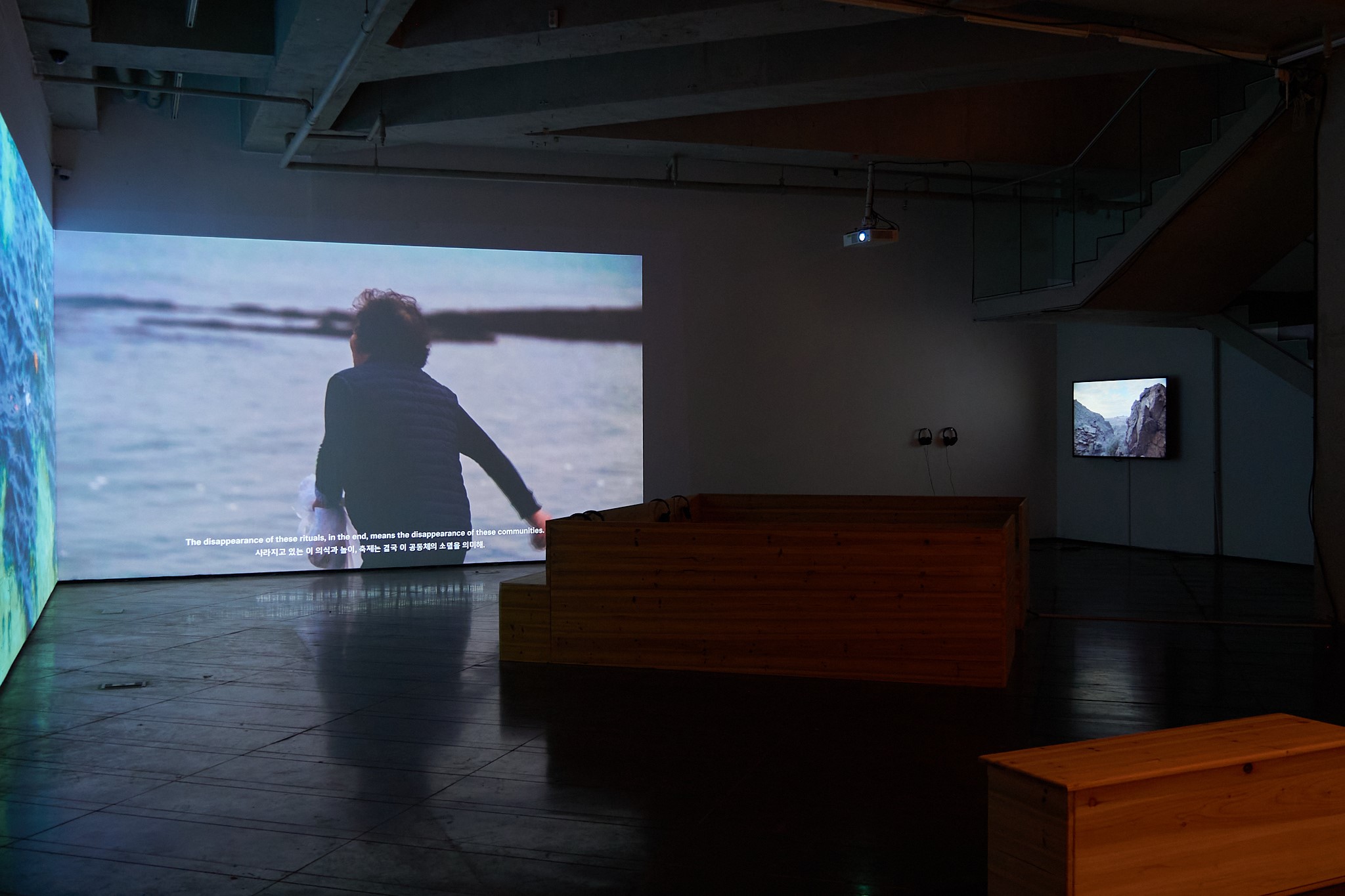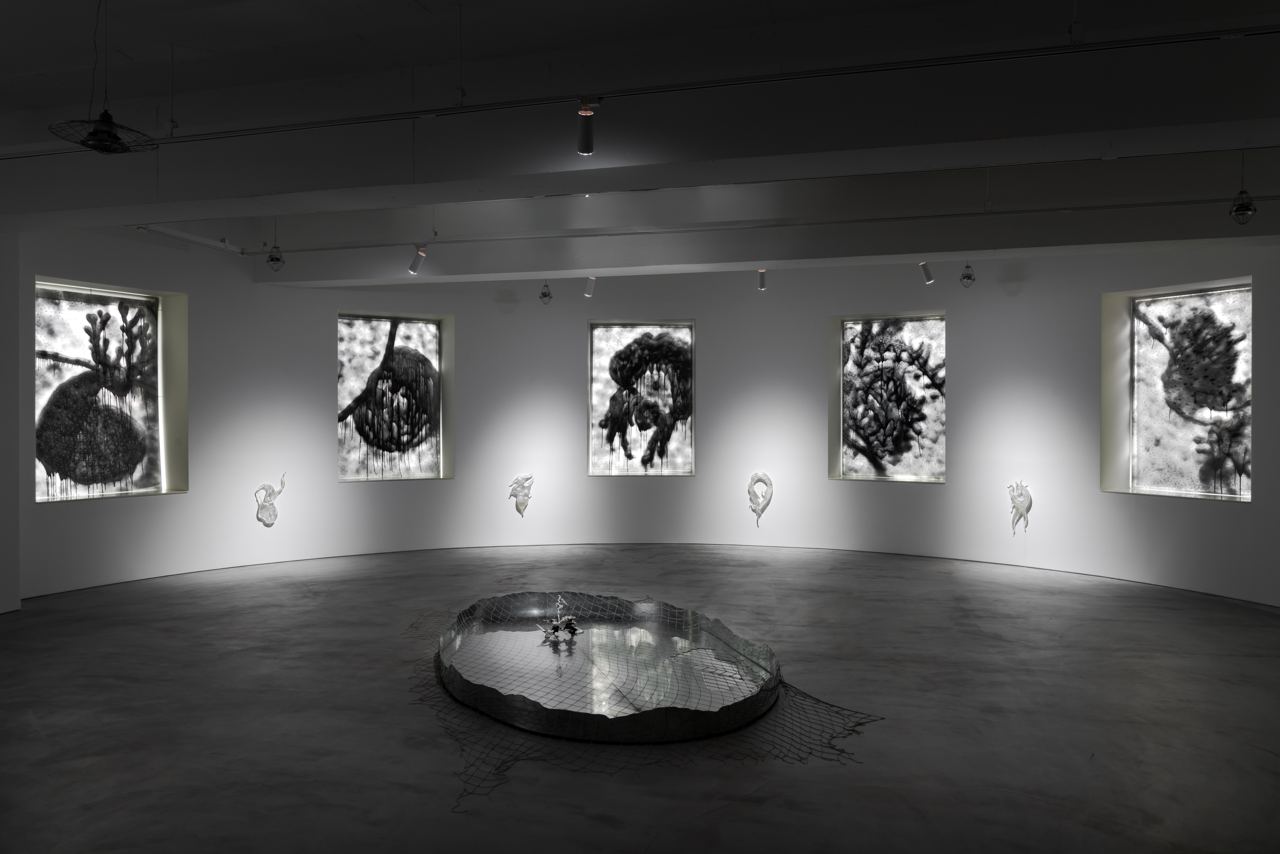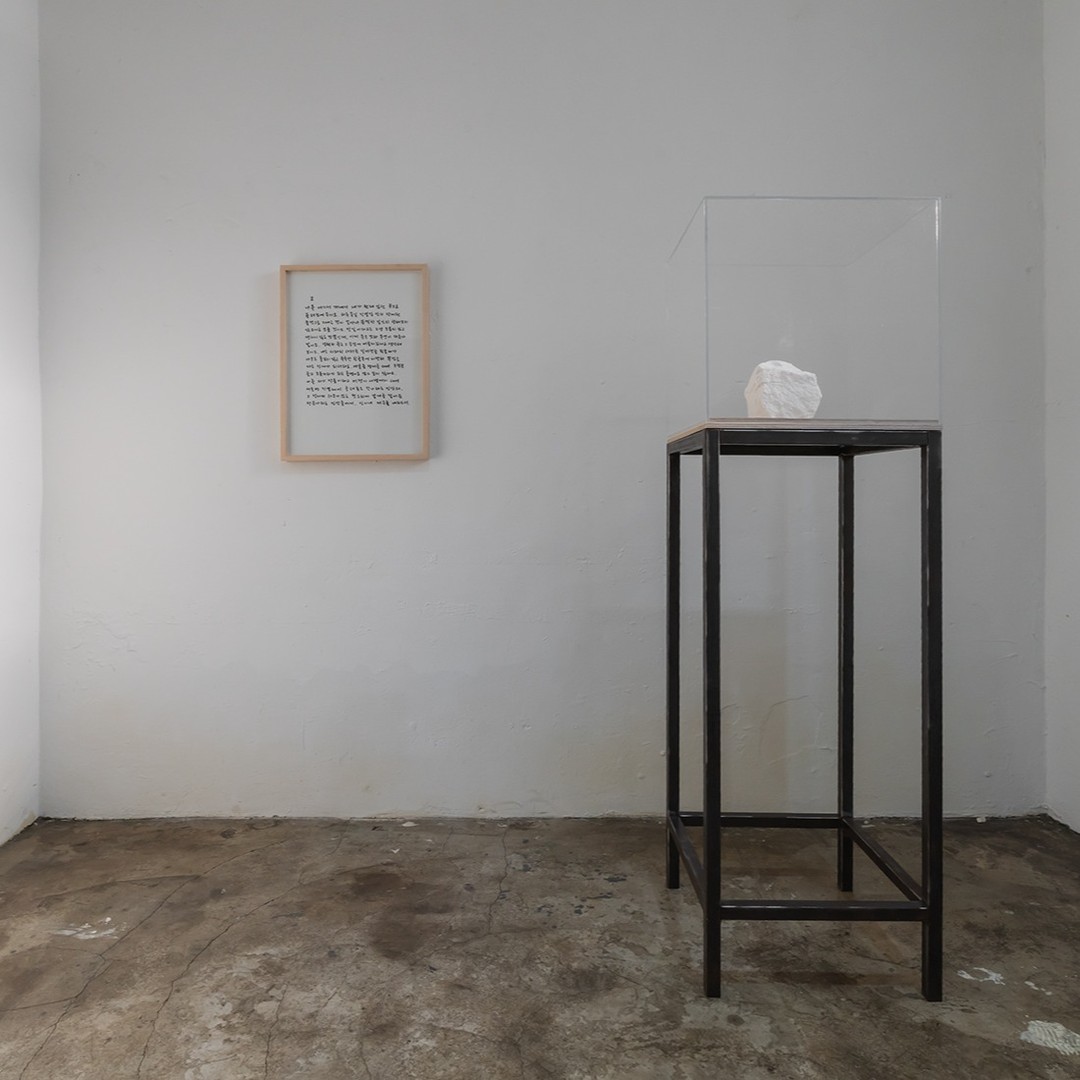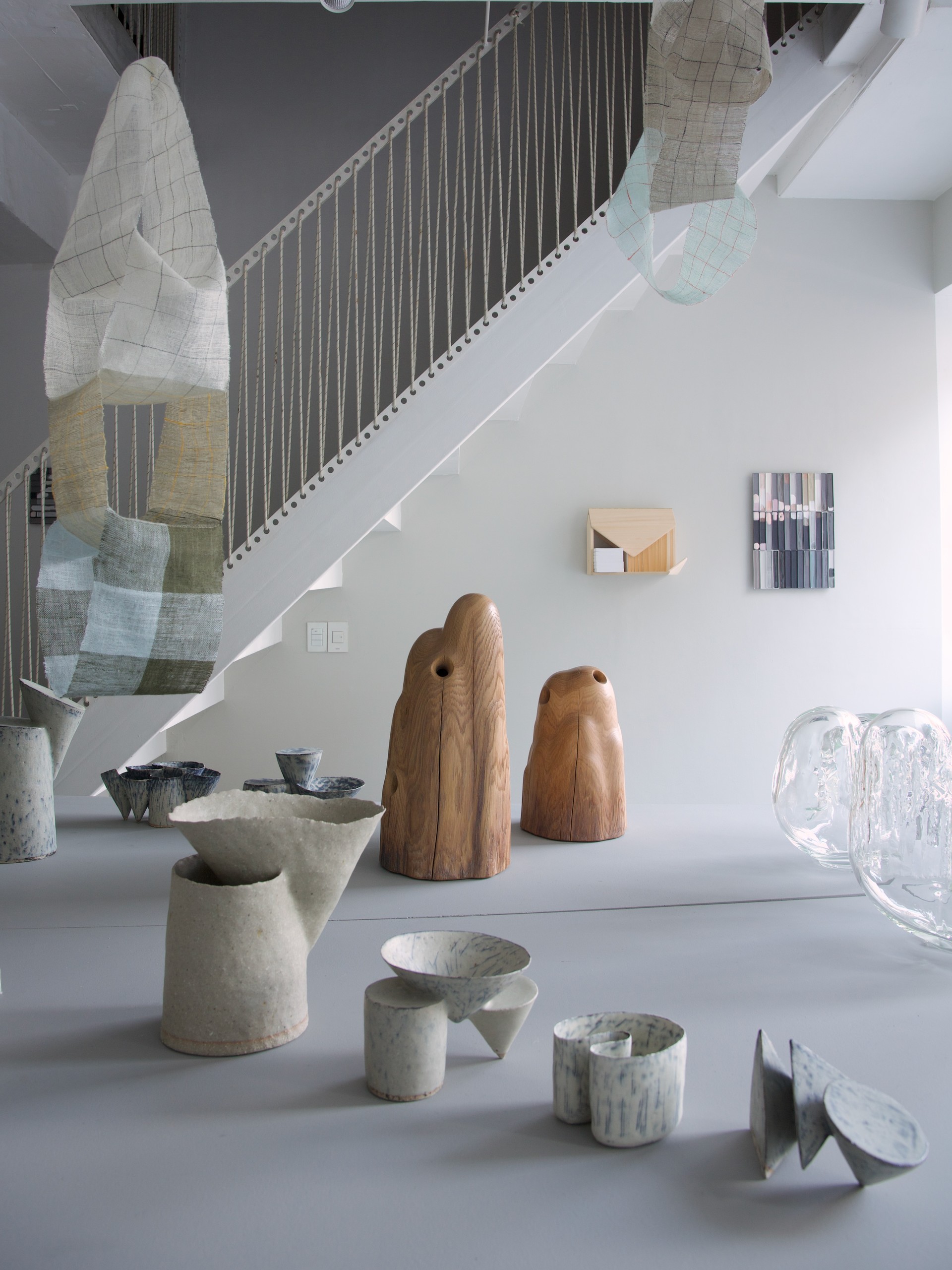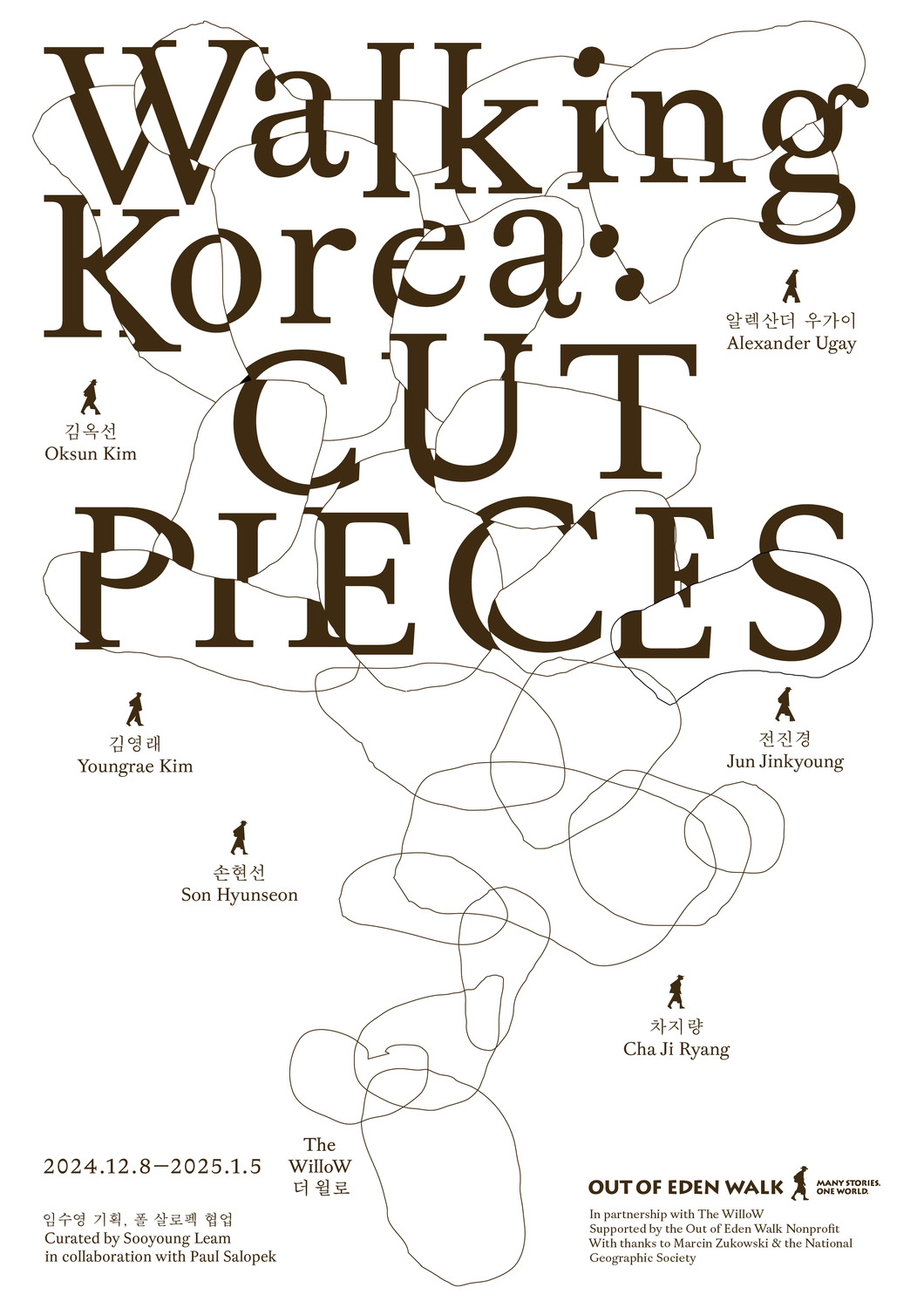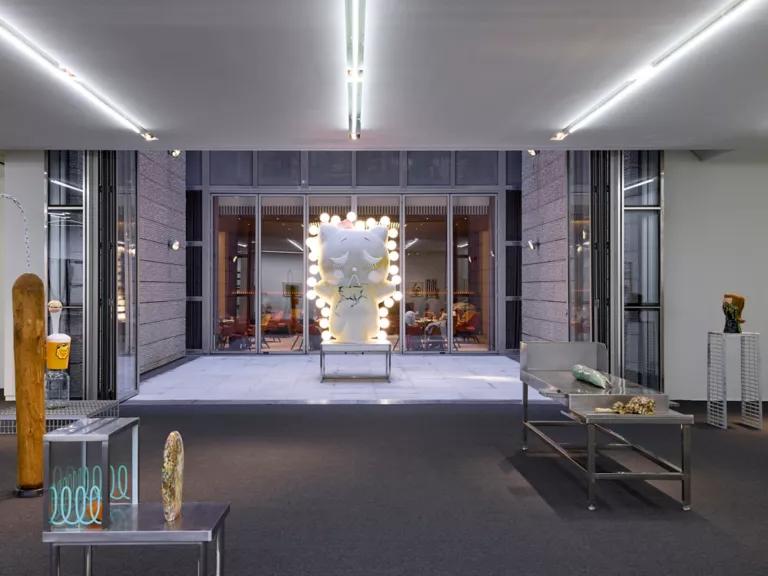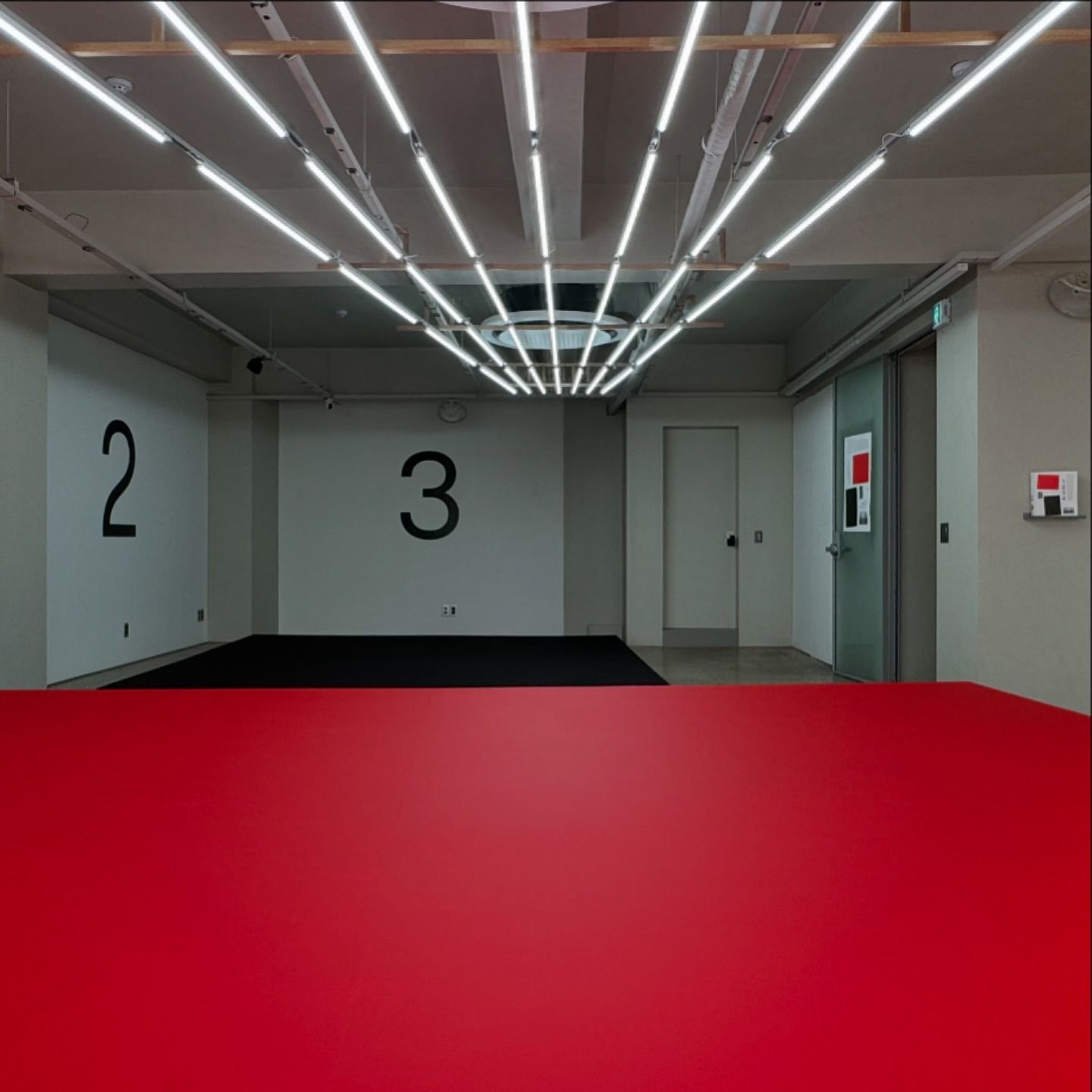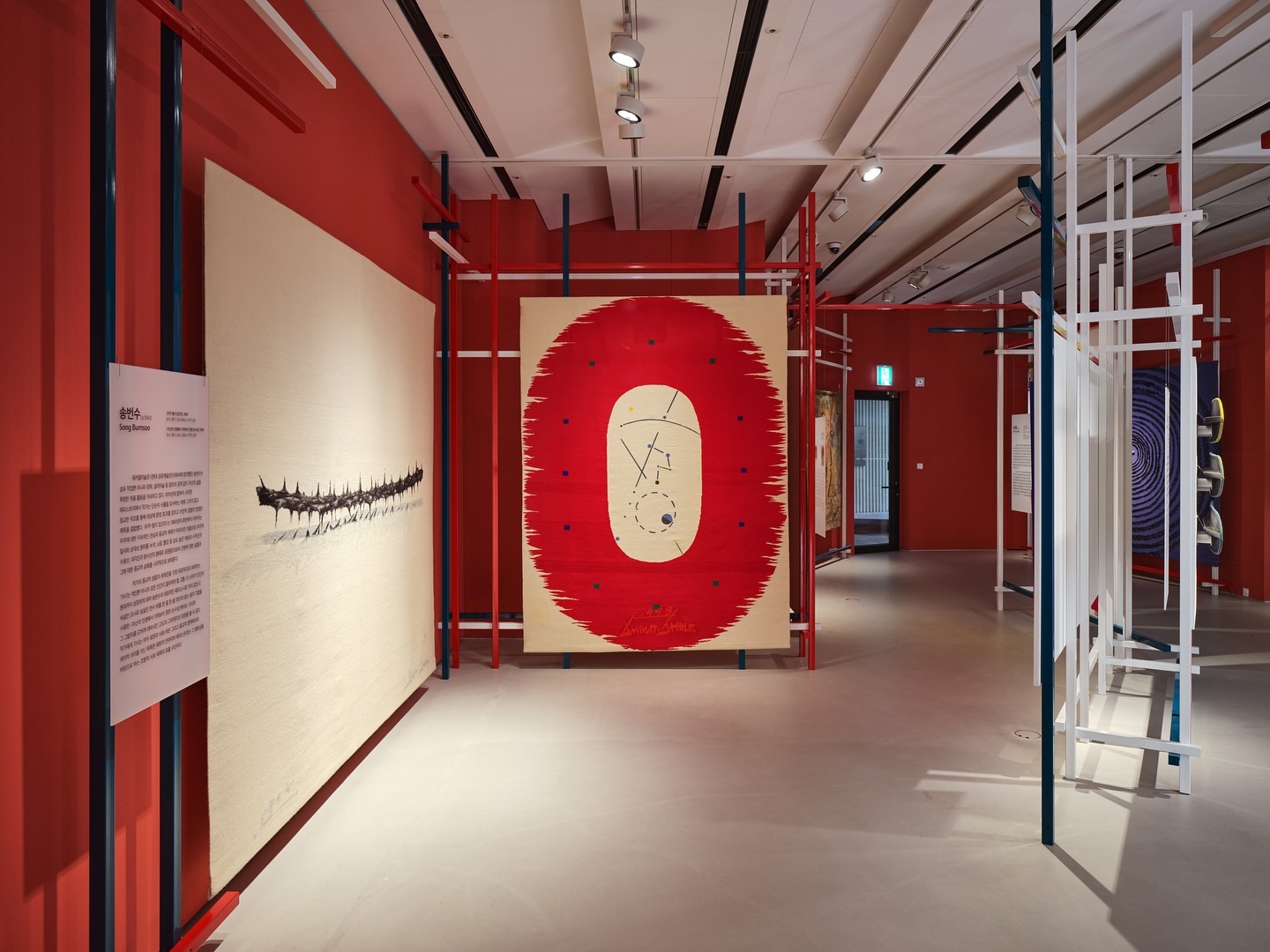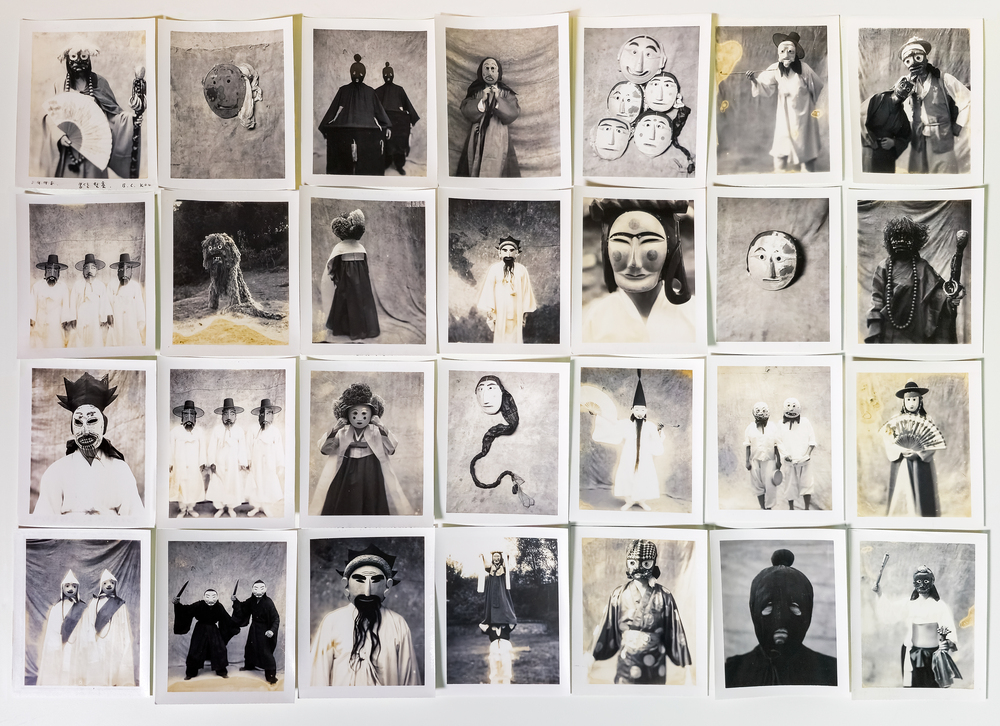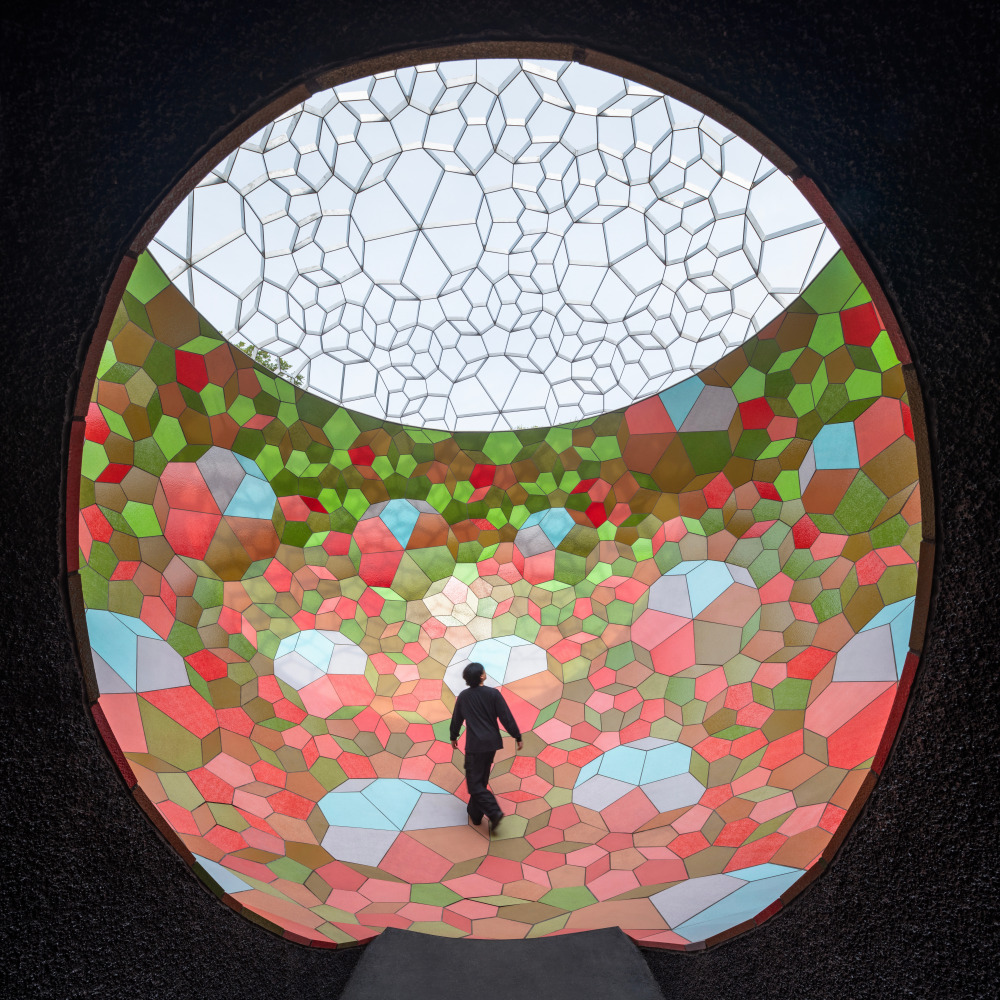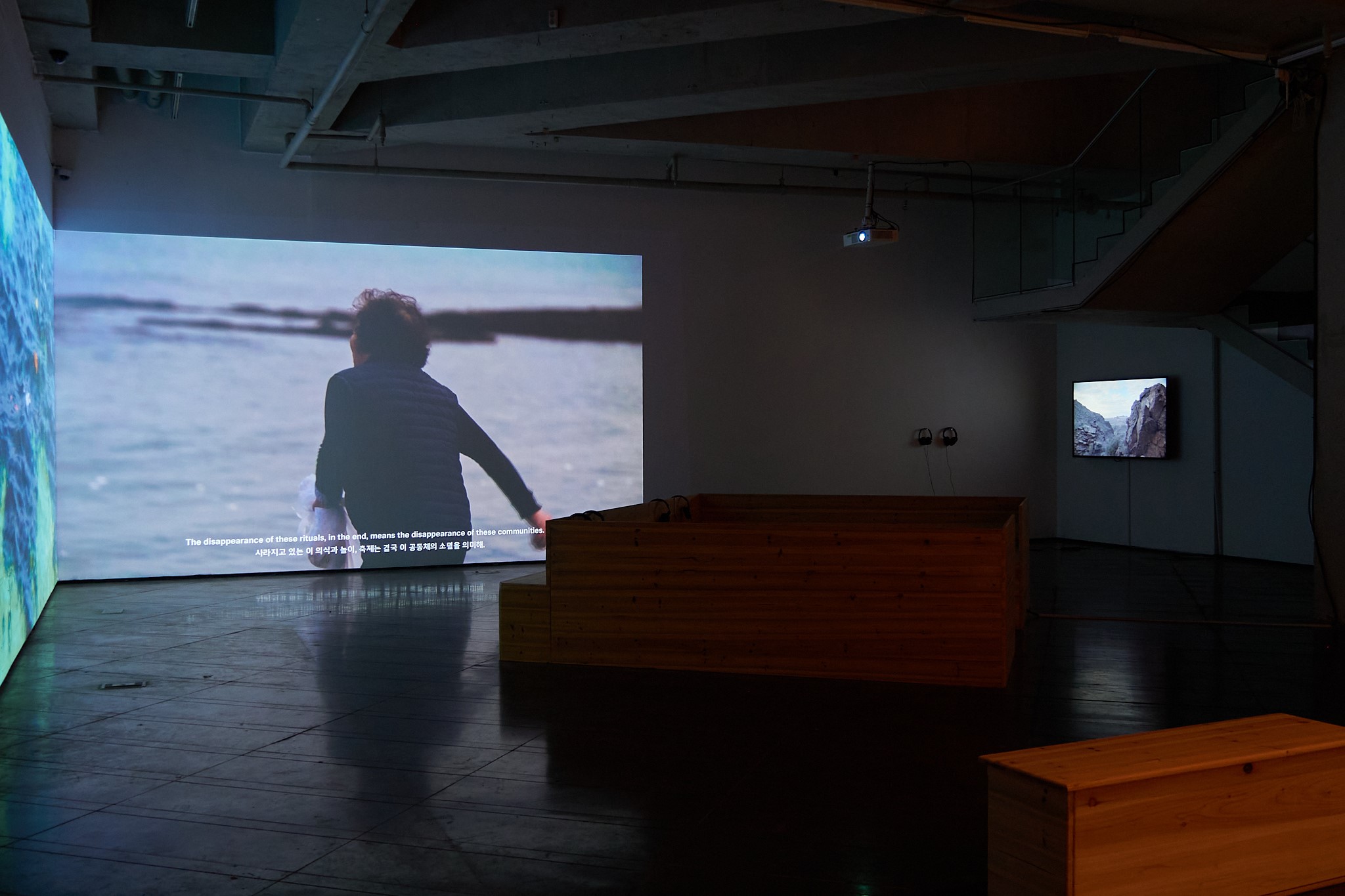 “Why I Swim” Installation view at Alternative Space LOOP ©Alternative Space LOOP
“Why I Swim” Installation view at Alternative Space LOOP ©Alternative Space LOOPAlternative Space LOOP is presenting Why I Swim, a solo exhibition by artist Yo-E Ryou (b.1987), through June 11. This exhibition features video and installation works, discourses on feminine writing and hydro feminism, and an archival installation of simple diagrams, clippings, photographs, writings and drawings on the wall.
Hydrofeminism means “human beings are not treated as individual beings but as beings in relationship with other living beings along with water,” the artist talks about water and women’s perspectives from a hydro-feminist perspective. After experiencing the pandemic and burnout in New York City in 2021, the artist moved to Hadori, Gujwa-eup, Jeju-si and in spring 2022, she started an ‘Unlearning Space’ at the birthplace of Haenyeo Ko Yi-hwa* to conduct art education and care programs on the theme of water, women, and Jeju.
The exhibition connects the life and experience of learning to swim for the first time in 30 years, running an unlearning space, and learning from a neighboring haenyeo grandmother through artistic work. The works question the roots and fundamental healing of the physical and mental exhaustion and lethargy felt by women and artists who have experienced burnout.
Drop by drop, the sound of rain grows louder and louder until it becomes the sound of waves, which are superimposed with the sound of raging rain, storms, and huge waves and transformed into the mechanical sound of burnout. Later, the sound of water splashing into the sea is accompanied by a story about the local haenyeo, Ko Ihwa, told by the local haenyeo. “Why I Swim” which is based on the artist’s experience while learning to swim, takes the form of a letter to a distant friend in which the artist describes the process of overcoming burnout.
The earth and humans are composed of 70% water, and humans have lived in amniotic fluid since they were fetuses. The artist connects and explores hybrid feminism with the personal narrative of a woman who was born in amniotic fluid and dives back into the sea and lives with the sea. The haenyeo grandmothers teach the artist about indigenous ways of connecting with their bodies and the sea, and she begins to break away from the Western education and customs she has received.
*Ko Ihwa (1916-2013) Haenyeo: Ko Ihwa was the recipient of Jeju’s first Haenyeo Awards in 2000, and she was the top of the ‘Sanggun’ having started practicing at the age of nine, making her the oldest Haenyeo in Jeju. Ko Ihwa is a living witness to the ‘Jeju Haenyeo activists’. The 1932 Jeju Haenyeo protest was the largest women’s protest movement in Korea, and she was a 16-year-old girl at the time. She played a big role in passing down the haenyeo songs that later became the basis of haenyeo culture.



